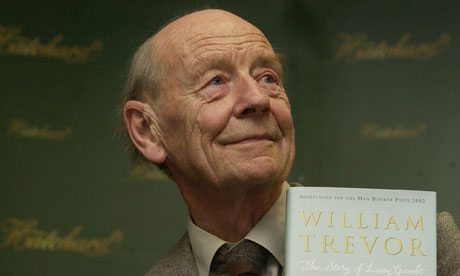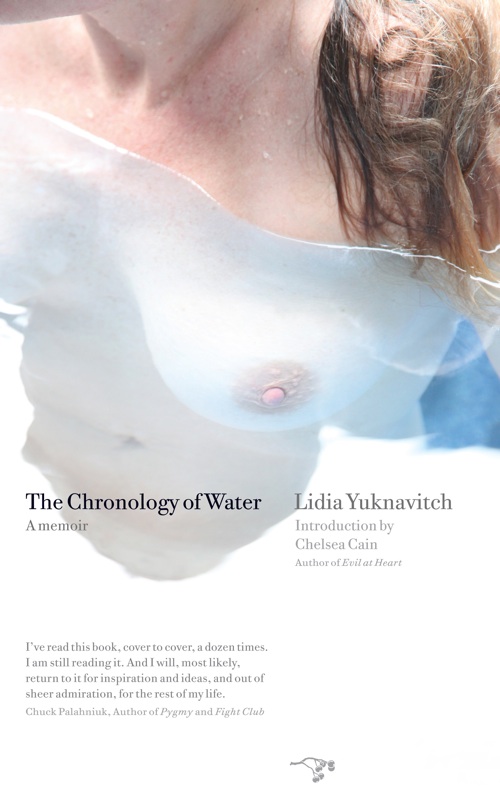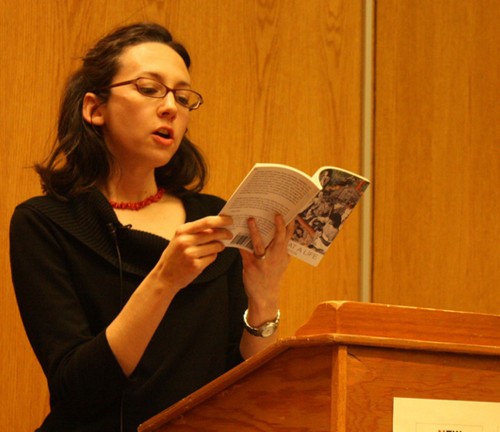9 commas, still wearable, happy turnip day
11. Yo, sonny, there is a new Diagram out.
10. The Business Insider offers 33 unusual tips to being a better writer. They seem obvious, stupid, sometimes smart, rarely unusual. OK, this was unusual:
Take a huge bowel movement every day. And you won’t see that on any other list on how to be a better writer. If your body doesn’t flow then your brain won’t flow. Eat more fruit if you have to.
8. The Decemberists ripped off all of Dr. Dre’s The Chronic.
The Believer Book Award shortlist. Local favorites S P R A W L and The Orange Eats Creeps are included. Melville House is presenting a new thing, The Indie Booksellers Choice Awards. John Ashbery translated Rimbaud’s Illuminations, and that’s coming out in May, and here’s a rad excerpt over at alan’s blog.
Neurology, Experience, Age, and Re/reading
1. Last semester, I assigned the essay “Once More to the Lake” by E.B. White to my students. Most of them were not into it. I suggested that the author’s inner conflicts about change and aging might be more real to them when they are older; they were even less into that. I don’t blame them for being offended; it’s no good to be told we are too young to understand something. I’m not much older than them, so in my mind I was implicating myself in that, but even so.
2. When I was twenty, a much older friend told me that, at my age, I had to listen to Horses by Patti Smith. I did, a lot, and rarely do anymore. Around the same time, I read something in the New Yorker about how the author loved Sylvia Plath in her (or his? can’t remember) late teens/early twenties. I felt somehow offended. I never read much Plath, but I was reading a lot of Sexton at the time. I don’t read much Sexton anymore.
3. When I was 13, I tried reading Austen. I didn’t get very far. When I was 16, I read The Adventures of Huckleberry Finn. I liked it, but I don’t remember thinking it was very funny. That year, I also read Lolita up to the point of the motel sex scene, then quit. I don’t remember thinking the writing was particularly special. These days, I count Emma, Huckleberry Finn, and Lolita as top-favorite most-important-t0-me novels. The ones that delight me the most.
4. Last year, I went to a Leonard Cohen concert. I’ve always really liked his songs, especially the early ones. Birds on wires, Janis Joplin giving head and all that. The concert was by all definitions amazing. Technically perfect and highly charged. He kept falling to his knees or something. But I wasn’t moved as much as I would have liked. I kept thinking, he is old. He has accomplished so much, and here is the fruit of all that. A packed house. What more could he want. I believe that my failure to be moved had to do with not being able to comprehend what he still wanted, feared, needed, regretted after so many years and so much success without seeming to compromise. Sure, he must fear death and regret something, but I didn’t hear that in his singing.
This kind of thing is still happening to me. Does it happen to you? Are you offended yet, as I was and still probably would be if someone told me I’m just not ready for Cormac McCarthy yet, or that in time I will grow out of Frank O’Hara?
Research shows that our brain is still developing into our late twenties. What effect if any does that have on our taste in books? On how much delight we feel, or how much we “get it,” or when we are moved or not? Something in me resists it.
On the other hand, it’s comforting to think that there is something additive about aging. That we keep understanding more things. That an increased knowledge of and commerce with language and the world will further unblock us from art. READ MORE >
Some Thoughts Re Muumuu House

'nylon': 2009 Nylon article re Muumuu House
[Ed. note: A month or two ago, Jordan Castro wrote me an email containing a review he’d written for Matthew Savoca’s long love poem with descriptive title. The review was less a review and more a personal reflection on Jordan’s part, referring to things about the book pertaining to himself: what he did while reading it, how it made him feel, etc. In fact, the review ended: “I really only thought about myself. Again.” I felt interested, or at least curious, as to why this kind of review, and really, this kind of relating to things by one’s self rather than the thing itself, compelled not only Jordan, but also a kind of group with which Jordan has been grouped, i.e. Tao Lin and Muumuu House, writers of an often readily identifiable, and sometimes ire inducing, style, that pertains often mostly to feelings, incidental observations, and what might could be called “absurdist emo” (I just made that up). Instead of the book review, then, I asked Jordan to write about these associations; what fuels them, why the self-focus, maybe even what is kind of going on? Jordan’s thoughtful, and I think generous, and probably in more than one way controversial, reply follows below. -BB]
INTRODUCTION
Throughout the history of literature – or the history of anything, rather – people have found other people like them and they’ve “stuck with” those people for a period of time, supporting them, “hanging out” with them, etc.
This is what people do. They communicate. They form relationships. They do things to alleviate the monotony of their existences.
Muumuu House (est. 2009) [http://muumuuhouse.com], a publisher of poetry, fiction, Twitter selections and Gmail chats, seems, to me, to “simply” be those patterns of humanity “in action” – a group of socially alienated individuals who chose literature as their means of alleviating monotony and who, as a result of that and other things, inadvertently (invariably?) “united.”
In other words, I feel like Muumuu House – or “the Muumuu House group of writers” – are a group of people who like similar things, like any other group of people.
If this essay exists to “say anything,” it exists, I think, “simply” to explore my own thoughts about Muumuu House and a certain type of writer/person.
Need a job or a date? Finally all your reading pays off! On the east coast, Melville House is hiring on their editorial team and on the west, the San Francisco Public Library is hosting speed dating events. A Library in Chattanooga, TN is also hosting literary dating events, but bless your heart if you live there. Let us know how beers with the Bukowski fan goes…
William Trevor v. The Idea of Experimental Writing

From the Paris Review interview:
No, I think all writing is experimental. The very obvious sort of experimental writing is not really more experimental than that of a conventional writer like myself. I experiment all the time but the experiments are hidden. Rather like abstract art: You look at an abstract picture, and then you look at a close-up of a Renaissance painting and find the same abstractions.
Richard Kalich’s Penthouse F
 I just finished reading Richard Kalich’s Penthouse F, which is brand new from the always provocative Green Integer. I was surprised to not have previously heard of Kalich despite his three previous books having been lauded by Brian Evenson (“Kalich is after what it means to be profoundly out of step with one’s culture yet still unwilling to let go of the American dream”) and various fantastic others. As soon as I opened the book just casually after having gotten it in a stack from the mail, I found myself compelled to start reading it posthaste, as the way the book is set up, as a mishmash of interviews conducted in a trial, documents pertaining to said trial, and the author’s personal interjections, it was clear that this book is of the kind that once you start you just want to keep reading both to find out what happens, and in this case, the strange way it makes what happens work. I’ve since bought everything else by Kalich I can find (nameably The Nihilesthete (1987) & The Zoo (2001) & Charlie P (2005)).
I just finished reading Richard Kalich’s Penthouse F, which is brand new from the always provocative Green Integer. I was surprised to not have previously heard of Kalich despite his three previous books having been lauded by Brian Evenson (“Kalich is after what it means to be profoundly out of step with one’s culture yet still unwilling to let go of the American dream”) and various fantastic others. As soon as I opened the book just casually after having gotten it in a stack from the mail, I found myself compelled to start reading it posthaste, as the way the book is set up, as a mishmash of interviews conducted in a trial, documents pertaining to said trial, and the author’s personal interjections, it was clear that this book is of the kind that once you start you just want to keep reading both to find out what happens, and in this case, the strange way it makes what happens work. I’ve since bought everything else by Kalich I can find (nameably The Nihilesthete (1987) & The Zoo (2001) & Charlie P (2005)).
The main meat of the proceeding involves the author himself, and what becomes an increasingly strange question as to the nature of his work. The book opens with a series of notes the author had scribbled years back re: the creation of the book itself, and leads therein into an investigation of said proceedings: which directly involve the author’s implication in the matter of a suicide by a young man and woman who had come to live with the author, and then decided to jump to their death from his apartment’s window. The trial, then, is of the author, wherein the question of his involvement in those deaths is being examined, particularly seeing that the literary work he’d been directly mirrored the relationship with the boy and girl, and in fact, gives his story, on paper, as a reflection of life, an end. A question then as to the author’s responsibility for his arrangements and imaginations, as well as where the line between fantasy and reality is drawn, is processed through his character, his actions, and his work.
March 3rd, 2011 / 5:11 pm
Geography Thursday: Land in water, landing on land
Pithy quotes about islands and humanity are plentiful and sift their way through our brains such that we are always aware of the metaphor of the island, fearful of our own loneliness and despair, careful of misstep, lest our desire for excitement and remembrance lead us to a fate like Robinson Crusoe. Wait: is Robinson Crusoe still in our consciousness? Or do you imagine, instead, a furry-faced Tom Hanks finding solace and friendship in a volleyball?
But islands do not have to be desolate. They can abound with exotic fruits and hammocks. They can be spaces for rejuvination and hope. They can promise hot romance, or something like that. It just depends on your conception of island. For most of us, popular culture tells us that islands – no matter how remote – offer nothing short of exotic and erotic adventure. Think: Gilligan. Think: Lost. Think: Survivor.
March 3rd, 2011 / 4:39 pm
On Memoir and Experiment: The Chronology of Water by Lidia Yuknavitch
 I’ve spent the two days reading and re-reading Lidia Yuknavitch’s The Chronology of Water. After years of avoiding memoirs and thinking they were not for me, the past several months, I’ve been reading all kinds of memoirs and learning about the many different approaches to the genre. I might have to admit I really love memoirs. I don’t know if it’s because I’m very curious about the lives of others or if I am drawn to the confessional in nonfiction as much as I am in fiction but right now memoirs are speaking to me pretty seriously.
I’ve spent the two days reading and re-reading Lidia Yuknavitch’s The Chronology of Water. After years of avoiding memoirs and thinking they were not for me, the past several months, I’ve been reading all kinds of memoirs and learning about the many different approaches to the genre. I might have to admit I really love memoirs. I don’t know if it’s because I’m very curious about the lives of others or if I am drawn to the confessional in nonfiction as much as I am in fiction but right now memoirs are speaking to me pretty seriously.
I first heard about the book because I saw the cover here and last week I read this awesome essay on The Rumpus, by the author, about the cover and the heresy of a woman’s bared breast, nipple and all, on that cover. Then I heard about the book from a friend so I ordered it and the book arrived and I read it almost immediately and then I read it again and one more time for good measure.
The book itself is a fine, heavy object both literally and figuratively. The cover is gorgeous and when you read the book you’ll realize how appropriate it is to the writing. But even more than that, the paper is thick and slick and the design is clean and the cover has a nice matte coating. I enjoy these small details that contribute to a sensual, in the very sense of the word, reading experience.
In my previous posts about memoir, I’ve discussed how I find it difficult to review memoirs because it feels like you’re doing more than critiquing the writing, you’re also critiquing the life lived. This isn’t a review as much as it is me talking about a book that is really powerful and unlike any memoir I’ve yet read. I’m also interested in how this book can be used for teaching because it challenges the traditional memoir in really interesting ways and because, selfishly, one of the graduate students I’m serving on a committee for is writing a memoir as his thesis and these notes will help me in my work with him. As I’ve thought through this book, I’ve considered the various elements that really mark a shift from what I traditionally see in memoir writing: how the narrative deals with the body, how the memoir can be read as an open text through the use of absence, language invention, an alinear narrative structure, and decadent but controlled descriptions of emotion. Of course I’m going to end with emotion.
March 3rd, 2011 / 3:30 pm
What is Experimental Literature? {Five Questions: Danielle Dutton}
Danielle Dutton is the author of S P R A W L (shortlisted for the 2010 Believer Book Award) and Attempts at a Life. She designs books at Dalkey Archive Press; teaches in the Jack Kerouac School of Disembodied Poetics at Naropa; and runs Dorothy, a publishing project.




